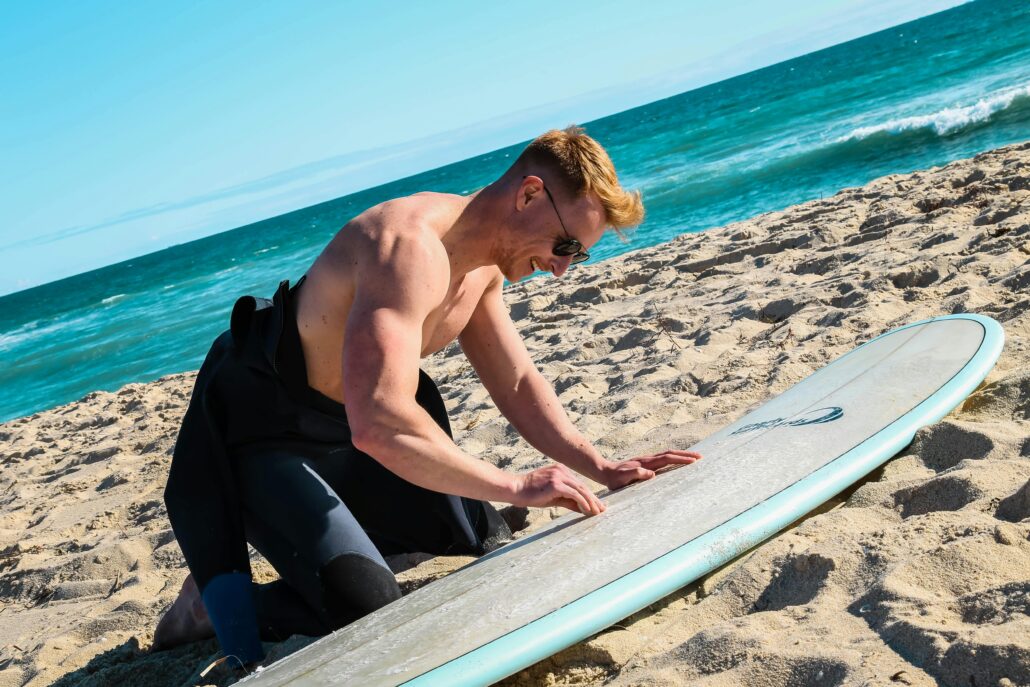Live in Australia and experience a vibrant lifestyle surrounded by stunning landscapes, diverse cultures, and endless opportunities. Whether you’re pursuing work, study, or a fresh start, Australia offers world-class amenities, a high standard of living, and a welcoming community to make you feel right at home.
Benefit from expert visa support, tailored advice on jobs and accommodation, and access to world-class education and healthcare. Start your journey with confidence and enjoy a vibrant, diverse lifestyle in one of the world’s best countries.

Planning to study, work, or live in Australia? Go to Australia is here to make your transition seamless and stress-free. From visa guidance to relocation tips, we offer comprehensive support to help you prepare for an exciting new chapter in Australia.
Whether you’re planning to study or work in Australia, we provide personalized assistance, including:
One of the first steps to starting your life in Australia is securing the right visa. At Go to Australia, we provide:
Our support doesn’t stop when you arrive in Australia. We continue to assist you with:
Go to Australia is dedicated to making your transition to life in Australia as smooth and enjoyable as possible. Whether you’re studying, working, or exploring the country, we’re here to guide you every step of the way. Start your journey with confidence—let us help you prepare for an incredible adventure in Australia!

Adjusting to life in Australia is easier with the right guidance. Go to Australia provides:
Wondering what to pack for your move to Australia? We provide:
Your first days in Australia can be overwhelming. Go to Australia offers an Arrival Survival Guide to help you settle in quickly and stress-free. Here’s what’s included:
Australia is a vibrant and diverse country known for its natural beauty, welcoming culture, and high standard of living. Whether you’re visiting, studying, or planning to settle, here’s an overview of what life in Australia is like.
Whether you’re exploring as a tourist, pursuing studies, or building a new life
As an international student, you will have attained Overseas Student Health Cover (OSHC) insurance. But, to increase your level of insurance coverage, you might also want to invest in other forms of insurance. For example, travel insurance will offer protection if your airline cancels your flight and you need accommodation or you the airline loses your luggage. It also covers you are somehow injured on your travel. Another useful insurance is contents insurance. It will cover the cost of your valuable items in your home (i.e. TV, game consoles, jewellery and furniture). Lastly, third party car insurance is compulsory in Australia if you own a car or motorbike. This provides with insurance against damage caused to other cars. An additional insurance is recommended for vehicle holders. It is the comprehensive car insurance and it covers damage to your car in the event of an accident.
There will be lots of opportunity to shop in Australia when you arrive. Australia features many large shopping malls in the town centres and capital cities. You will find a selection of world-class shopping facilities. Shopping hours vary but generally are from 9.00 am to 5.00 pm seven days a week (with late-night shopping until 9.00 pm on Thursday or Friday). Also, some supermarkets open 24 hours a day, seven days a week. Others, like Coles and Woolworths, are open until about 10pm every day.
In Australia, there are four major banks including: Commonwealth Bank, ANZ, Westpac and National Australia Bank (NAB).Tthey each have many branches across the country. In addition to these banks, there are plenty of smaller banks with good coverage (as well as credit unions) and large international banks such as ING, Citibank and others.
Banks in Australia are open during normal trading hours from 9.30 am to 4.00 pm Monday to Thursday and 9.30 am to 5.00 pm on Friday. You can also find some banks open on Saturday mornings, but all banks close on Sundays and public holidays. If you need to access your bank account after hours, you can use the many Automatic teller machines (ATMs) that are readily available for withdrawals 24 hours a day. Lastly, most stores and supermarkets have Electronic Funds Transfer At Point of Sale (EFTPOS) terminals where you can pay for goods directly. For this reason, carrying large amounts of cash with you is unnecessary.
If you need to send mail or pay a utility bill (like electricity, telephone or gas bill), you will need to go to an Australia Post office. They also sell stationery, post bags, phone cards and stamps and office equipment like fax machines. Another service they offer is delivering mail. This happens once a day from Monday to Friday. If you receive a card from Australia Post for a large parcel, just take it to your nearest post office for collection. You might also need ID with you to claim the parcel as yours.
If you would like a cheaper way of making phone calls, and you have broadband access at home, you can look into setting-up a VOIP (Voice Over Internet Protocol) plan for your calls. They can offer considerable cost saving plans if you intend to use the phone often.
Watching television can be a great way to relax. Australia has over 35 free-to-air digital networks. If you want more programmes, you can try the dozens of pay-TV channels. For a monthly subscription fee, you can access these additional channels through Foxtel, Austar, Select TV and several others.
You can also source locally produced foreign-language newspapers at your larger newsagencies. Some international papers can also be found at these selected newsagencies.
A good way to build your social network and find support when you first arrive in Australia as an International student is by joining a group associated with your home community. It might also be a wonderful way of introduce new friends to your culture and heritage. To contact a local group that you might be interested in joining, try visiting one of the following websites:
Shopping
All major cities in Australia have their own shopping districts, most shops within a CBD are open 7 days a week with late night shopping on Thursdays and Fridays til 9pm. Supermarkets and other suburban retail outlets are open Monday to Saturday from 9am to 5 pm except for Thursdays when they are open until 9pm.
Banks
There are many banks available in Australia, based in most suburban and CBD locations. Banks are open to the public Monday to Thursday from 9:30am to 4:00pm, Fridays they are open until 5:00pm. Some of the larger banks in busier locations open on Saturdays from 9:30am to 12:00pm.
ATMs or Automatic Teller Machines are available where ever there is a branch, as well as in many other locations around Australia. ATMs are available for use 24 hours a day and 7 days a week.
Postal Services
Australia Post is the major postal service in Australia. There are post offices located in most major shopping centres as well as in various other locations. Open from Monday to Friday from 9:00am to 5:00pm as well as some shops opening on Saturdays from 9:00am to 12:00pm. Here customers can post letters, buy stationary equipment, apply for passports, pay bills etc. Mail is delivered from Monday to Friday, except for public holidays.
Telephones
Services and costs will depend on a plan and provider that the consumer has chosen. Most local calls cost around 30 cents and are not timed. There are also many public telephones located across Australia, these are coin operated.
Mobile phones tend to be the most popular communications method, with many cheaper pre paid phones available. Mobile phones can now be purchased from retail outlets, post offices as well as phone companies and even online. Purchase a prepaid HTC camera phone so you can capture all of the beautiful images and landscapes while in Australia.
Internet
There are many internet providers in Australia, with dial up, ADSL and wireless services available. Many people choose to link their internet and phone together for the same bill. If the customer chooses not to have a land line then wireless pre paid internet is a great option.
Libraries
Libraries are great for students here you can borrow a huge range of books, DVDs and CDs. All customers need to do is purchase a membership at a local library and all items borrowed are free of charge, providing they are returned. Libraries are open 6 days a week Monday to Saturday. Libraries are located in most shire or council districts.
Television
Most Australians use the free to air channels, there are 6 main channels available for viewing for free. Currently the government is bringing digital TV which will add an additional 15 channels for regular watches. Consumers of digital television will need to purchase either a digital ready television or a box which allows viewing on a regular television. For those who can afford it cable television is also available, this can be quite expensive how ever.
Newspapers
Each state has their own newspaper with only “The Australian” newspaper reaching the whole country. Community papers are also available through either the mail or at local shopping centres, these are free of charge.
The local newspapers are available 7 days a week, the most popular are, in New South Wales the “Sydney Morning Herald. In Victoria “The Age”.
In Queensland the most popular in the “Brisbane Courier Mail”. In the ACT the “Canberra Times”. In South Australia the “Adelaide Advertiser”.
Western Australia’s most widely spread paper is the “West Australian”. In the Northern Territory the locals purchase the “Northern Territory News” and in Tasmania the “Hobart Mercury” is the most purchased local paper.
Multicultural Community Groups
There are many groups in Australia designed to help foreigners feel more at home. A multicultural community group is run by people from the same country and is a great way to meet people.
Culture and Society
Australia is generally a very accepting country, as well as being very laid back. New comers will find lifestyle and culture quite different. As long as people are respectful, polite and non judgmental Australians will be accepting.
Priding it self on being a country of equality, Australians do not accept racist and sexist behavior.
Unacceptable behavior includes, smoking in government buildings, shopping centres, airports, public transport or in any public buildings or meeting places. Littering is also illegal and there are many bins provided on the sidewalks of most streets.
Culture Shock
Remember Australia is a brand new environment, feeling home sick is normal. Usually this feeling will disappear once the new surroundings become slightly more familiar.
If this feeling does not go away it may pay to see the international counsellor at the educational institute.
Australian Laws
Australia is a very free country, there are no restrictions on where they can live, how they can dress, what relationships they have or what they say (providing this is not a racist or sexist comment).
It is illegal in Australia to purchase or consume alcohol and cigarettes in the consumer is under 18. Smoking has been banned in public places due to health risks. No one is aloud to carry weapons or have illegal drugs on them. All acts of violence towards humans or animals will not be tolerated, all acts of violence will be prosecuted severely.
» Australia – Why Australia » Live in Australia